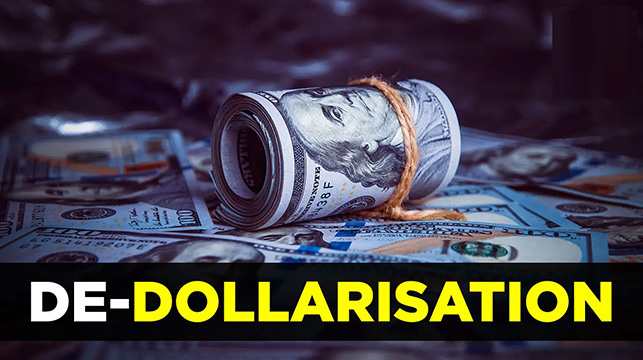 Pic.: ebc.com
Pic.: ebc.com
US importers are increasingly being asked by their foreign counterparties to settle transactions in currencies other than the US dollar, such as euros, Chinese renminbi, Mexican pesos, and Canadian dollars, Bloomberg notes.
When Paula Comings, the head of currency sales for US Bancorp, talks to US importers, she increasingly hears the same message: Their foreign counterparties no longer want to be paid in dollars.
Instead, they ask for settlement in euros, Chinese renminbi, the Mexican peso and the Canadian dollar, looking to limit their exposure to further swings in the greenback.
“A lot of clients previously were reluctant because dollars were sacred in the eyes of the supplier,” Comings said. “Now the vibe from overseas vendors seems to be, ‘Just give us our currency.’”
While the dollar saw a brief boost amid the turmoil in the Middle East, the currency is still about 8% lower this year against a basket of other currencies. That followed a steep gain of 7% in the final quarter of 2024, according to a Bloomberg index. This volatility, which complicates pricing decisions and poses earnings risks, increasingly means the dollar is falling out of favor.
Some US Bank clients offer a glimpse into this trend. A lumber company from the Midwest now converts its US cash into euros before paying for hardwood imports from Europe — a change from its previous practice of simply sending dollars. The move was spurred in part by a 2% discount offered by its European supplier for making payments in the single currency.
Another client, a homeware retailer that imports from China, renegotiated its terms with suppliers and plans to settle its next bill in yuan. A third customer, a US food company sourcing equipment from Italy, agreed to pay its dues in the common currency, causing it to receive a more favorable rate on a purchase worth €400,000 ($463,120).
“The change is difficult to quantify in real time, but in markets from East Asia to Latin America, a growing number of exporters are opting to denominate contracts in euro, yuan, or even local currencies,” said Karl Schamotta, chief market strategist at cross-border payments firm Corpay in Toronto.
While it remains to be seen if and when the shift manifests itself in official data, overseas vendors wanting to transact in local currencies “could speak to the dollar’s reputation,” US Bank’s Comings said.
read more in our Telegram-channel https://t.me/The_International_Affairs

 11:41 25.06.2025 •
11:41 25.06.2025 •






















